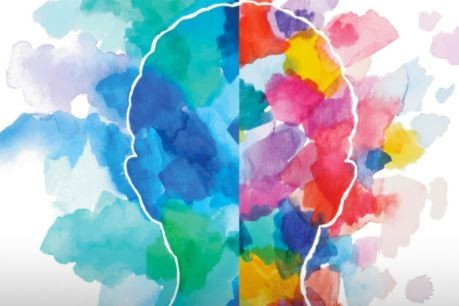Mental Well-being: people over processes?
I was speaking to a client last week – let’s call her “M”. I got to know she was down with fever and body pain after her first vaccine shot. I curiously asked if she had taken time off.
She said, “I know I must but I can’t because there is a project go-live, and the client won’t like it if we postpone timelines. Also, I am okay with it since I don’t want my ratings to be affected, particularly if I take time off closer to go-live”. I was startled. This is a top performer, a family person, a mother, a devoted professional eager to grow – but there is no room that the environment allows her to take a break even when physically unwell.
And then I woke up to the newspapers carrying Naomi Osaka’s note explaining why she was withdrawing from the French Open. At the cost of her participation, she wanted to withdraw so the attention was not her but on the tournament.
Coming into the tournament, she had indicated she won’t do post-match media interviews as these made her anxious, and she wanted to exercise self-care and focus on her game. (Remember her Slam wins are on hard courts, and she isn’t considered a favourite on clay surfaces). As we know now, the officials came down with a heavy hand citing penalties and code of conduct violations if Osaka didn’t appear for media interviews after each match. There was even a tweet citing various players who are doing press interviews and know what is expected from them. In the face of this onslaught, and with no support coming, Osaka withdrew from the tournament. Osaka is the current no.1 ranked women’s tennis player and one of the highest paid athletes as well as marketable names.
So the question arises – if someone of the stature of Osaka chooses to prioritise her mental health, and is faced with such backlash, what chances does “M”, a relatively unknown working professional have to care for herself.
The tennis world has failed Osaka by framing this as an individual’s challenge that must be allowed privacy and time, so the individual can heal themselves. Every reaction from current and past players is about how Osaka is the champion because she chose to take time off. No one has questioned organisers and officials at Roland Garros, on why they could not have shown sensitivity and made some concessions, especially since Osaka had already approached them in advance. Note, that Osaka wanted to focus on her matches and was not asking for concessions in playing conditions. She wanted to avoid extra scrutiny after matches as it would affect her negatively and shift focus away from the game. Instead, the only option she was left with, with the proverbial gun to the head, was to give up her participation in what she loves to do.
There are lessons from this situation for all of us, and there are plenty of questions too.
- Are process, norms and rules in place to serve people, or to shackle them?
- When does someone step in and provide leadership and empathy to a situation where conventional norms fall short?
- Can businesses be so ruthlessly focused on targets and goals alone?
- Are people the last priority in any transaction?
- Does economics trump human well-being?
If we are speaking about empathy and being sensitive to one another, is it sustainable for it to be based on private acts of individuals? True leaders will seize this opportunity to set right the disharmony created by systemic compulsions and pressures on individuals. While economic goals are important to our growth, we cannot achieve it at the cost of being battered mentally and physically.
When an athlete is injured, doctors advise her to take rest and not rush back for fear of aggravating the injury. The injury that many of us are facing at the moment is invisible and of an ongoing nature. Leaders, like doctors, must focus on long-term wellness of everyone so as to ensure their resources don’t break down.
How can it make economic sense, business sense or be conducive to growth if short-term goals are chased while ignoring the pressures on their resources that might lead to burnout, loss of performance, dip in creativity and reduced productivity. How can that help in the long run?
We are way past the ideology of organisational resilience – we must acknowledge that the collective resilience or long-term sustenance of our institutions is based on the individual well-being of people that comprise these entities.
And an organisation, a school or a nation that looks the other way when it comes to the well-being of their employees, children or citizens, will soon find itself to be irrelevant with the passage of time.
TAIL PIECE:
1) A video of a 6-year old Kashmiri girl complaining to PM Modi about long duration of her online classes and asking for easing of workload, went viral, and the authorities acknowledged that action will be taken to reduce workload for students.
2) A different Naomi Osaka anecdote must also be shared here. Her decision to withdraw from the 2020 Cincinnati Open in New York to raise awareness for the police shooting of Jacob Blake led the tournament to postpone all Association of Tennis Professionals (ATP) and Women’s Tennis Association (WTA) matches for a day in support of her cause.
So if there is a will, there is possibly a way!
Are we willing though?

